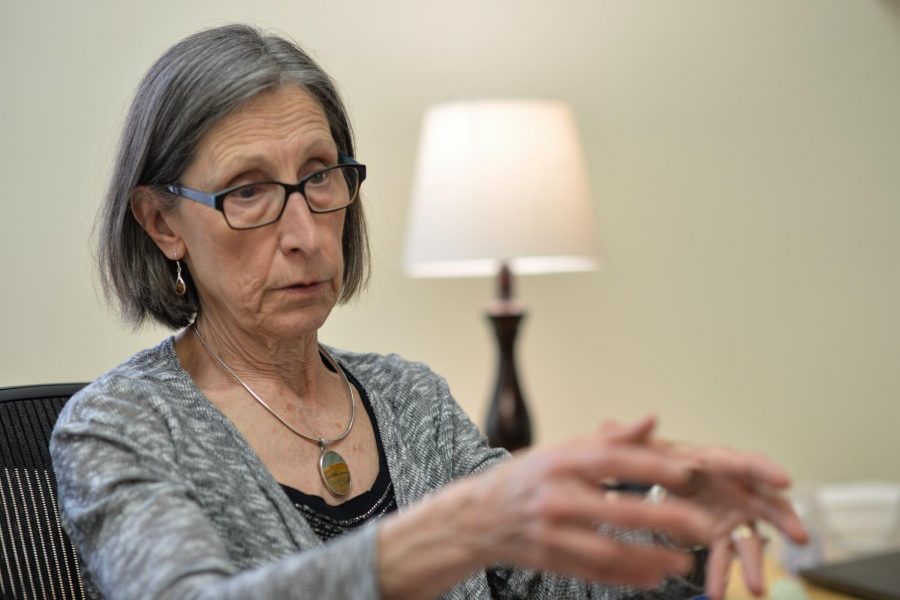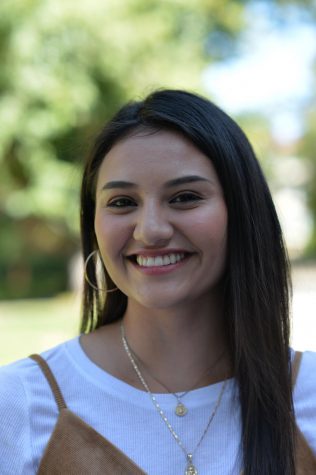Group holds implicit bias training
Being aware of bias can allow search committees to improve hiring practices, group says
STEPHEN MURNANE | THE DAILY EVERGREEN
Phyllis Erdman, associate dean in the College of Education, discusses inherent biases and how her new group plans to better understand and improve Thursday evening at the Physical Education Building.
April 29, 2019
In partnership with other divisions on campus, a group will offer a workshop this fall to increase implicit bias awareness for any department or program in the process of hiring.
Phyllis Erdman, executive associate dean for academic affairs in WSU’s College of Education, said the working group aims to increase the diversity of faculty and staff across all WSU campuses.
Jaime Nolan, associate vice president for community, equity and inclusive excellence, said they will hold a large discussion and then break into smaller groups to discuss implicit bias. The training workshops will be held at the beginning of each semester.
“We’re hoping that eventually all search committees will engage in an implicit bias training, so they’re aware of their own biases when they go into the search process,” Erdman said.
Nolan said she has met with four WSU search committees in the past two weeks. Search committees have access to an online implicit bias toolkit, she said.
In the toolkit, members of search committees can read an article about implicit bias, watch a video and take an implicit bias test, she said. They will also discuss what implicit bias is and the importance of awareness.
“What’s really important, I think for everyone to understand, is that all human beings have implicit bias,” Nolan said. “It’s how our brains organize the world for us.”
She said implicit bias can happen in terms of race or gender, as well as a preference toward people from a particular region.
The working group will look to develop initiatives to support and retain employees, Nolan said.
They will also work to create a resource guide for faculty and staff. She said the resource guide would be useful, especially for members of underrepresented communities, to make connections and learn about the institution.
Being aware of implicit bias can allow search committees to improve their hiring practices by being more aware of how they interact with people and the assumptions they make about them, Nolan said.
Erdman said the training is not required, but it is highly encouraged and expected. She said people might be more receptive to attending if they see the benefits of the workshop.
Nolan said WSU has done work previously to address implicit bias in the hiring process, but now they are hoping to implement a more system-wide approach.
The working groups are composed of students, faculty and staff across different campuses, Nolan said, which has the potential to have a positive impact on the campus climate because of the collective voices and experiences.
WSU President Kirk Schulz voiced his support for the implicit bias training during his state of the university address, Nolan said, and WSU community members want to make a difference in that regard.
Erdman said the work to establish a climate of inclusiveness will be an ongoing process.
“The five working groups were created about a year ago with the idea that our job will not be done and then we’ll forget about it,” she said. “Establishing a culture of inclusiveness and diversity is something you have to pay attention to every single day.”










